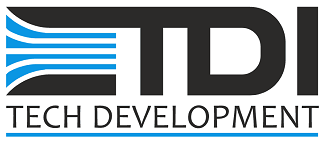In the current realm of construction projects, the importance of perfect data must be considered. From the beginning of a project to its completion, accuracy in data ensures the success and efficiency of the construction process. Recently, the integration of evolved technologies, like 3D modeling surveys, has improved the execution of construction projects, whether home, highways or Facebook Campus projects. This blog shared the manifold pros of perfect data, focusing significantly on the benefits of 3D modeling surveys.
Enhanced Planning and Design
Perfect data forms the bedrock of effective planning and design in construction projects. By incorporating accurate information, you can create comprehensive and realistic plans. This aids in minimizing the likelihood of unforeseen problems during the construction phase. Additionally, 3d site modeling boise surveys allow a detailed and three-dimensional representation of the site. This enables designers and planners to visualize the project in its entirety.
Enhanced Decision-Making
Perfect data empowers project stakeholders to make intelligent decisions at every stage of construction. With reliable data, you can assess risks, allocate resources efficiently, and make wise choices contributing to project success. In addition, 3D modeling surveys add an extra layer of sophistication to decision-making.
This provides a realistic simulation of the construction environment, helping stakeholders evaluate design alternatives, identify potential risks, and make wise decisions before construction begins.
Increased Cost Efficiency
One of the biggest pros of accurate data in construction projects is the potential for increased cost efficiency. By reducing mistakes and optimizing resource allocation, construction projects can stay within budget constraints. Most 3D modeling surveys contribute to cost efficiency by curbing rework, allowing for better visualization of construction processes. This saves money and accelerates the construction timeline.
Enhanced Collaboration and Communication
Perfect information ensures accurate collaboration and communication among project teams. With a shared and precise knowledge of project requirements, stakeholders can communicate more efficiently, enhancing coordination and productivity.
3D modeling surveys play a critical role in strengthening collaboration by offering a visual representation of the project accessible to all team members. This ensures better communication and comprehension, especially in complicated construction projects involving numerous disciplines.
Quality Assurance and Risk Mitigation
Precise data is ideal for ensuring the quality of construction projects. It allows the project team to notice and rectify potential complexities before they arise. This minimizes the risk of defects and rework. 3D modeling surveys ensure quality assurance by providing a detailed view of the construction site, allowing members to determine clashes and conflicts in the design early on. This great approach to risk mitigation boosts the ultimate reliability and durability of the constructed assets.
Resource Optimization
Efficient resource management is crucial for the success of any construction project. Analytics allows construction experts to optimize labor allocation, components, and tools. By analyzing data on resource usage, you can identify areas for improvement, minimize waste, and ensure that resources are allocated in the most cost-appropriate way. This causes increased productivity and cost savings.
In conclusion, the pros of accurate data in construction projects are significant and transformative. From improved planning, precise data forms the cornerstone of successful construction endeavors. Integrating 3D modeling surveys further elevates these advantages, providing a whole and realistic view of the construction environment.




